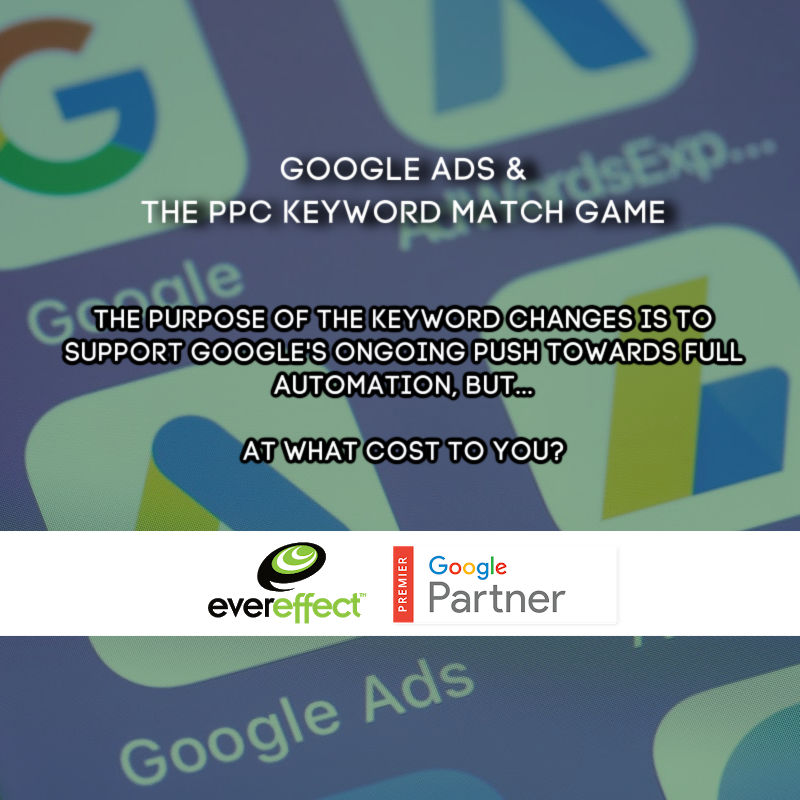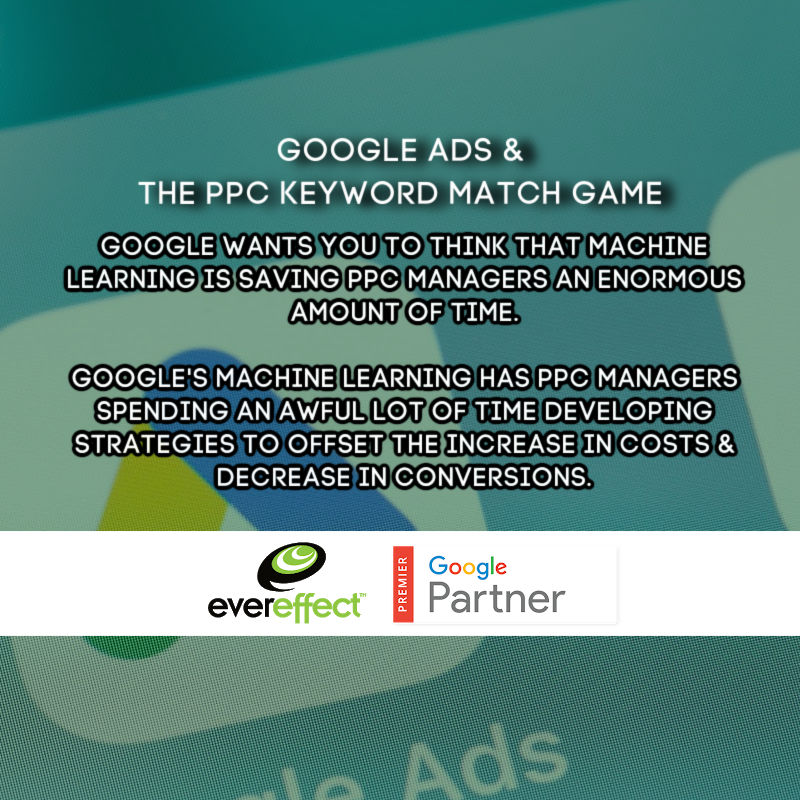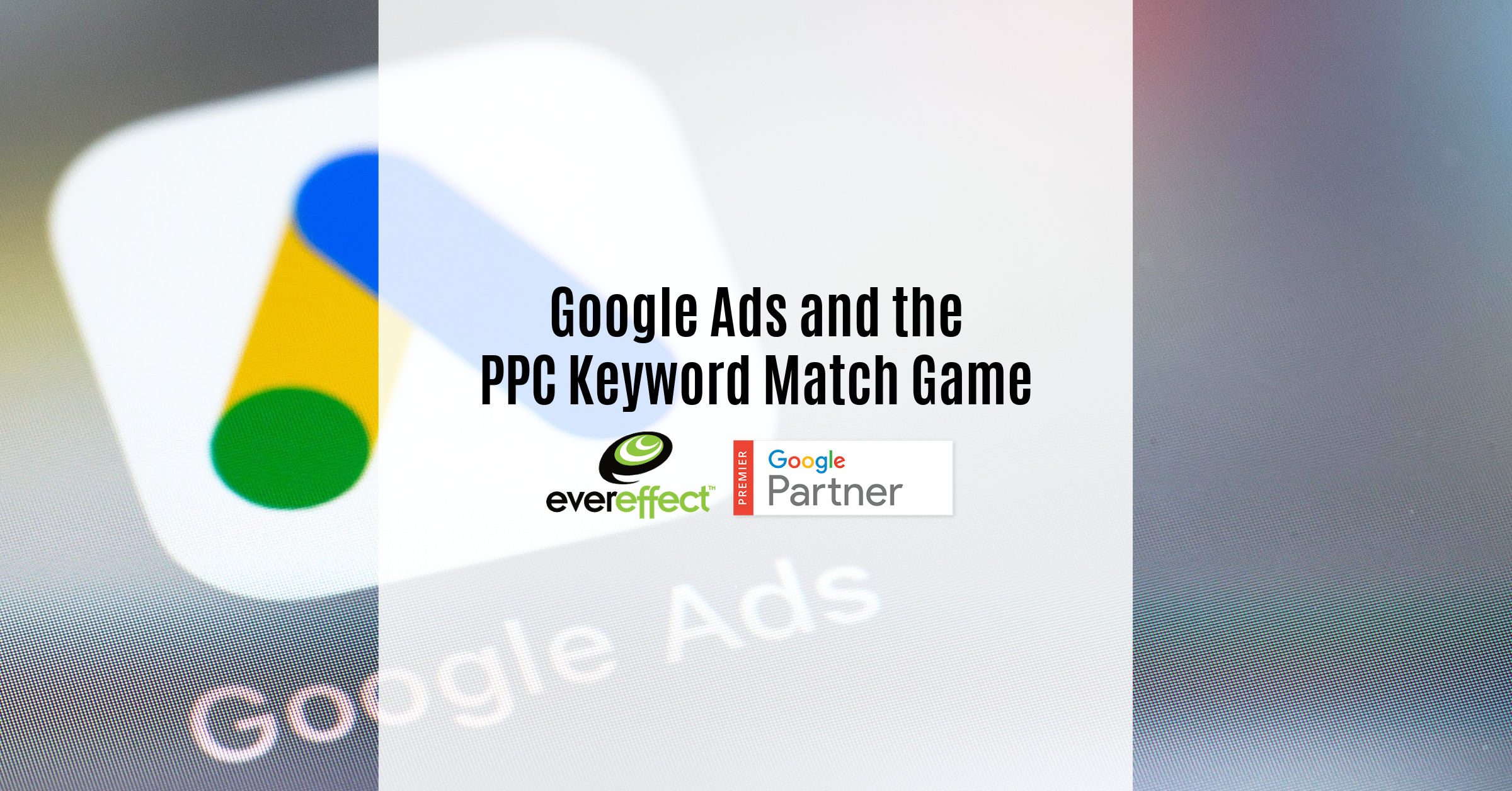Google Ads and the PPC Keyword Match Game
Years ago, I used to watch The Match Game, a game show featuring contestants trying to match answers given by celebrity panelists to fill-in-the-blank questions with the queries often formed as hilarious double entendres.
The object of the game was to match the answers given by celebrity panelists to fill-in-the-blank statements.
A couple of classic examples:
- “Mary likes to pour gravy all over John’s _____?”
- “Johnny always put butter on his _____?”
There was a Head-to-Head Match segment during which the contestant was instructed that his or her response must be an Exact Match, although singular/plural matches were usually accepted; synonyms, derivatives, and partial word phrases were not.
If you are a Game Show Junky you can catch reruns of The Match Game at https://www.gameshownetwork.com.
By now you are wondering what does an old school game show have to do with PPC management strategy?
Well, Google has begun playing games with Keyword Matches.
Years ago, there were three basic types of Keywords:
- Broad Match
- “Phrase Match”
- [Exact Match]
Based on years of results, we assigned a Value to the various types of Keyword Matches to guide our Bidding.
- Exact Match = 100%
- Phrase Matches were valued at 75% of an Exact Match
- Broad Matches were valued at 25% of an Exact Match
For example, if our Bids were $10.00 for an Exact Match Keyword, we Bid $7.50 for a Phrase Match version of that same term, and $2.50 for the Broad Match.
We pursued this policy because Exact Match Keywords had the best Conversion Rates and ROI while Phrase Match Keywords performed okay, but with lower returns. Broad Match Keywords had the worst Conversion Metrics, so why pay the same amount for a Broad Match as an Exact Match? It just did not make sense.
At one point, we abandoned the use of Broad Match Keywords altogether as we could achieve client goals without them with better Conversion Metrics and lower Cost.
In 2010, Google introduced the +Broad +Match +Modifier Keyword option, which allowed advertisers to specify certain words (with a plus sign) that had to be included in search queries.
BMMs were a huge improvement over regular Broad Matches as they operated more like Phrase Matches while vastly reducing the undesirable Impressions and Clicks that came with Broad Match use. We began using Broad Match Modified Keywords and assigned a higher Value to them than regular Broad Match Keywords. We still opted to avoid the latter.
As of February 18, 2021, Google expanded the Phrase Match type to match more search queries, and Broad Match Modified Keywords wereretired.
We use the same Keywords in various combinations in most PPC Campaigns that we manage. As of February 18, we have two options:
- Delete the Broad Match Modified Keyword as being a Duplicate Keyword or Redundant
- Convert the Broad Match Modified Keyword into a true Broad Match type

The purpose of the Keyword changes is to support the ongoing push towards full automation, but at what cost?
The following practices are considered impediments to evolving search practices based upon Machine-Learning:
- Exact Match and Phrase Match Keywords; they limit Impressions and Click Volume
- Employing “Duplicate” Keywords across every Match Type as it is no longer considered beneficial to do so
- Using Negative Keywords
- Manual Bidding at the Keyword Level and using Bid Adjustments or Bidding Rules
- Having Fixed Budgets instead of Unconstrained (a euphemism for Unlimited) Budgets
The above practices just get in the way of Machine Learning, which no longer needs –
- Well-defined Account Structures
- A focus on Quality Scores
- Negative Keywords
One of the avowed benefits of caving in – or in BS Bingo, Leaning Into – Machine-Learning is that PPC Managers can save an enormous amount of time by not having to devote as much time to manually optimize Accounts while having extra time to focus on Strategy.

Right now, we are spending an awful lot of time trying to develop strategies to offset huge increases in Costs and decreases in Conversions that are occurring with the shakeup in Keyword Matches and Machine-Learning.
To be fair, we are having some success with Machine-Learning, but results are inconsistent. Some Accounts / Campaigns benefit more than others. Maybe 15% of our clients are currently experiencing adverse effects in the early days of this Keyword Match type shake-up.
Back to The Match Game:
- “When Goofy Google asks me to rely more on Broad Match Keywords, I want to _____?”
- “Pay per Click Clients just love spending more to get _____?”

